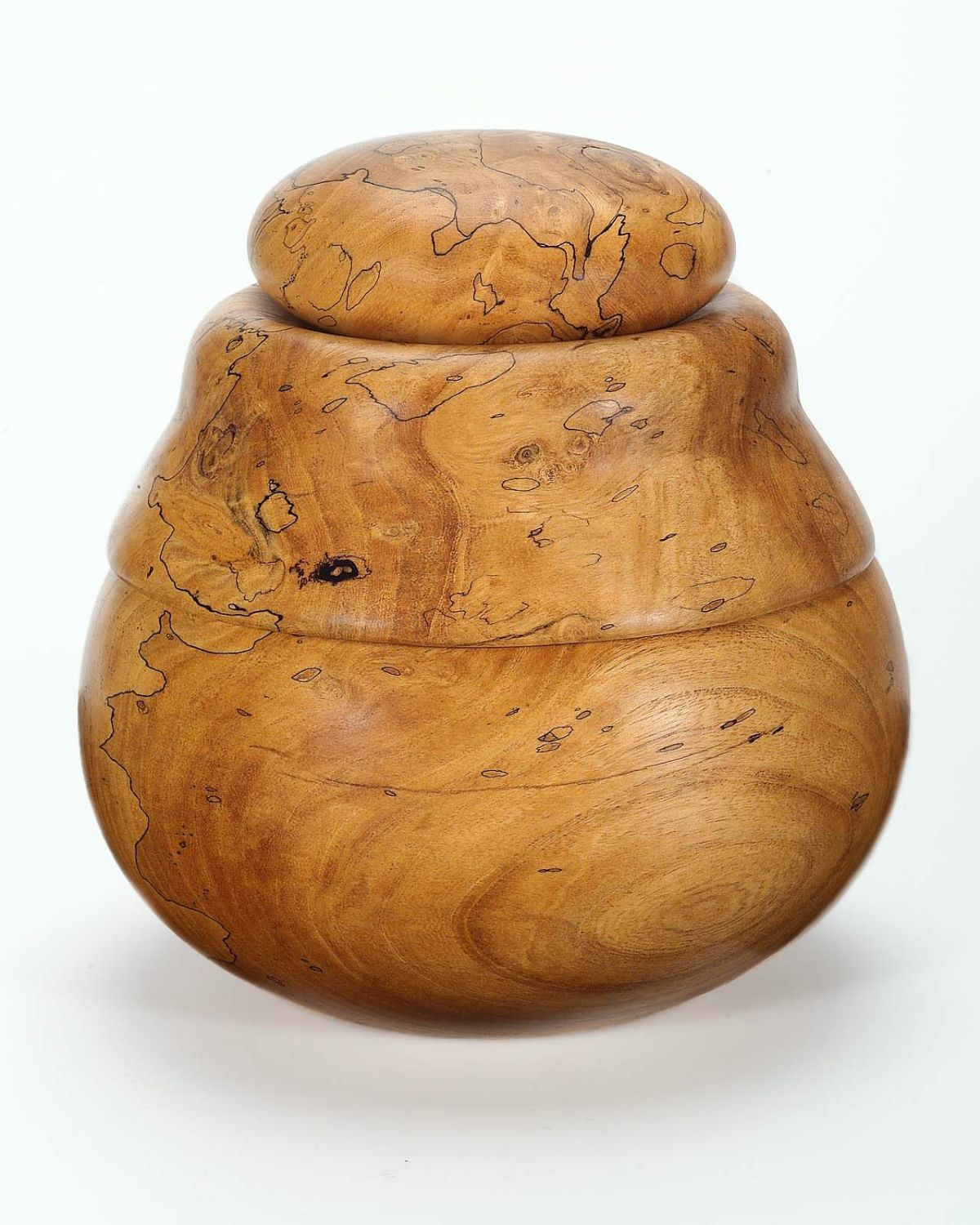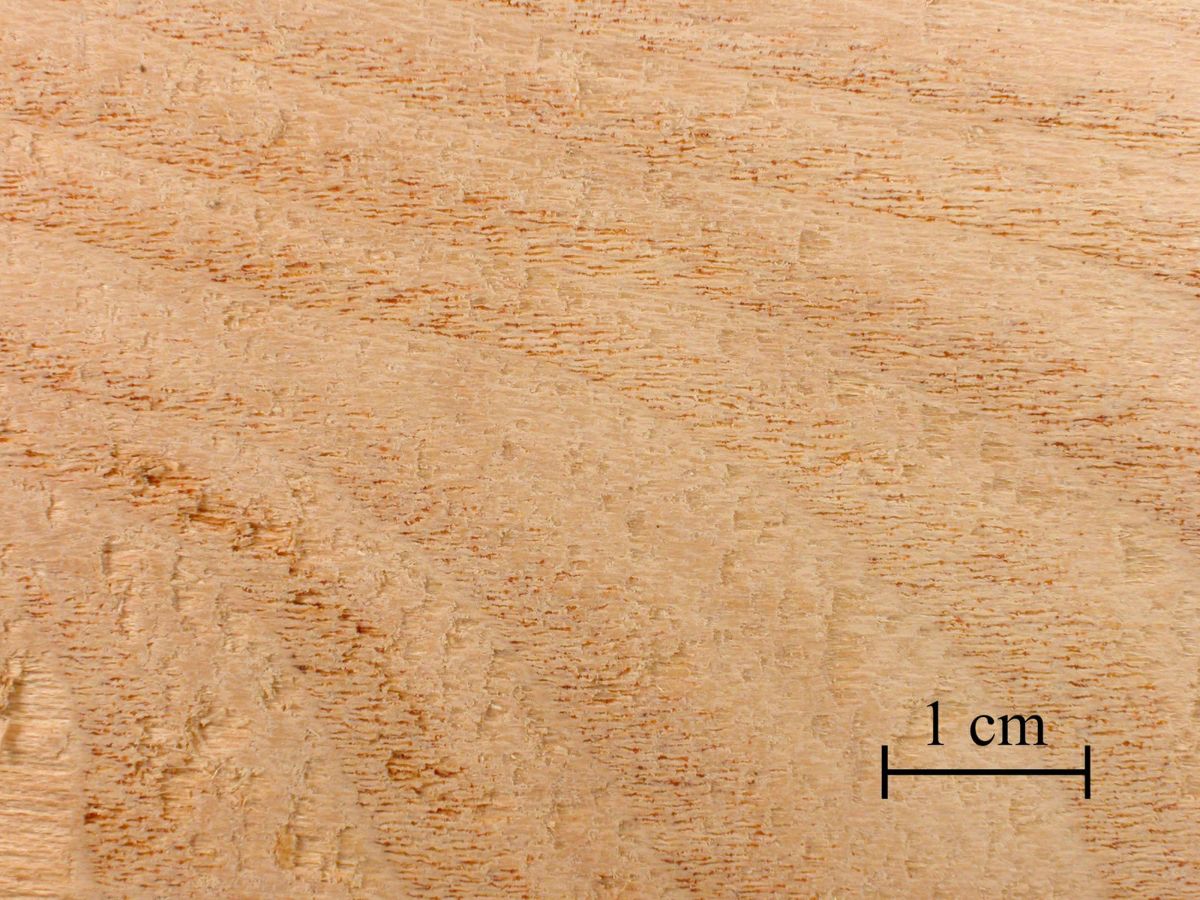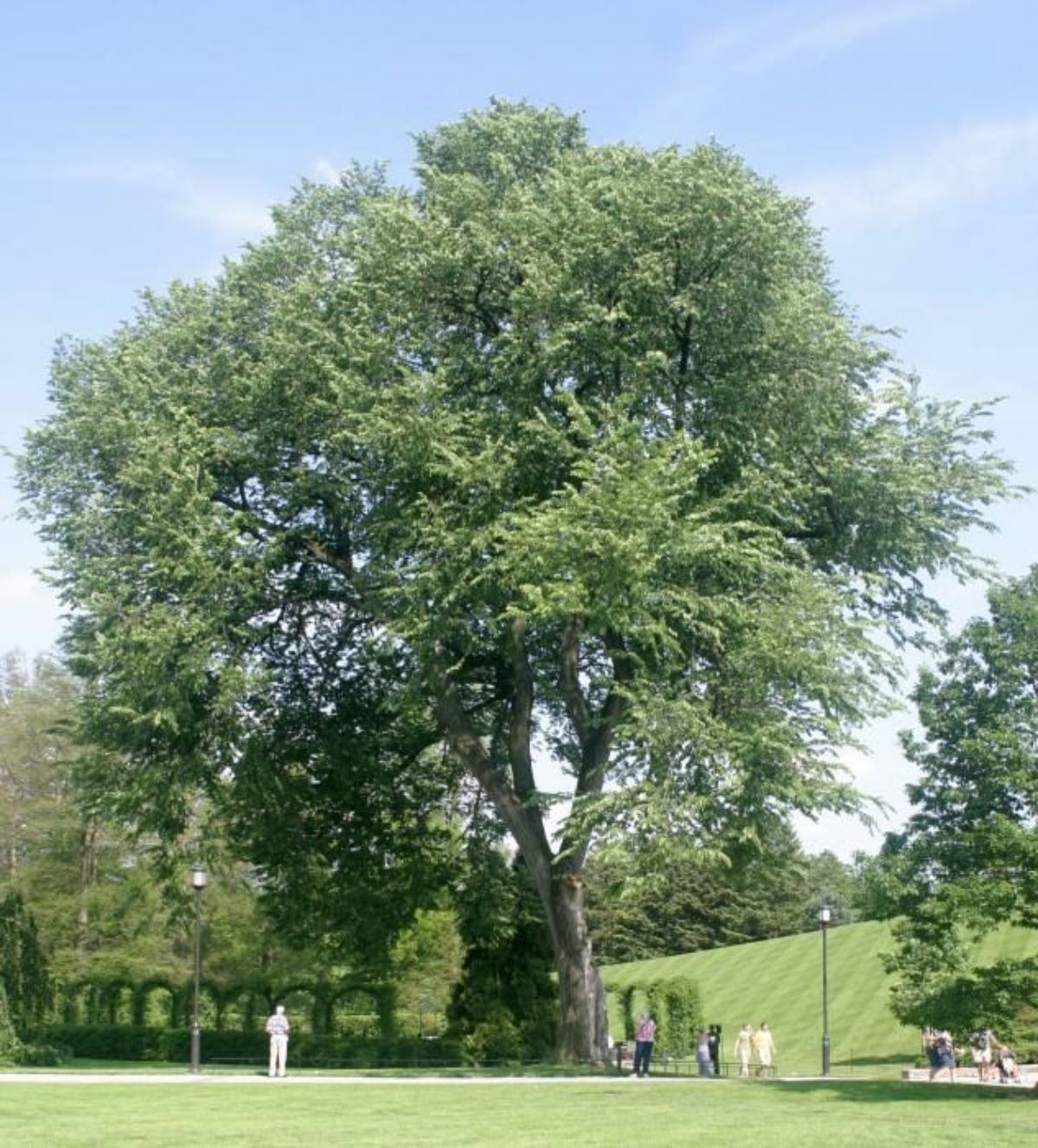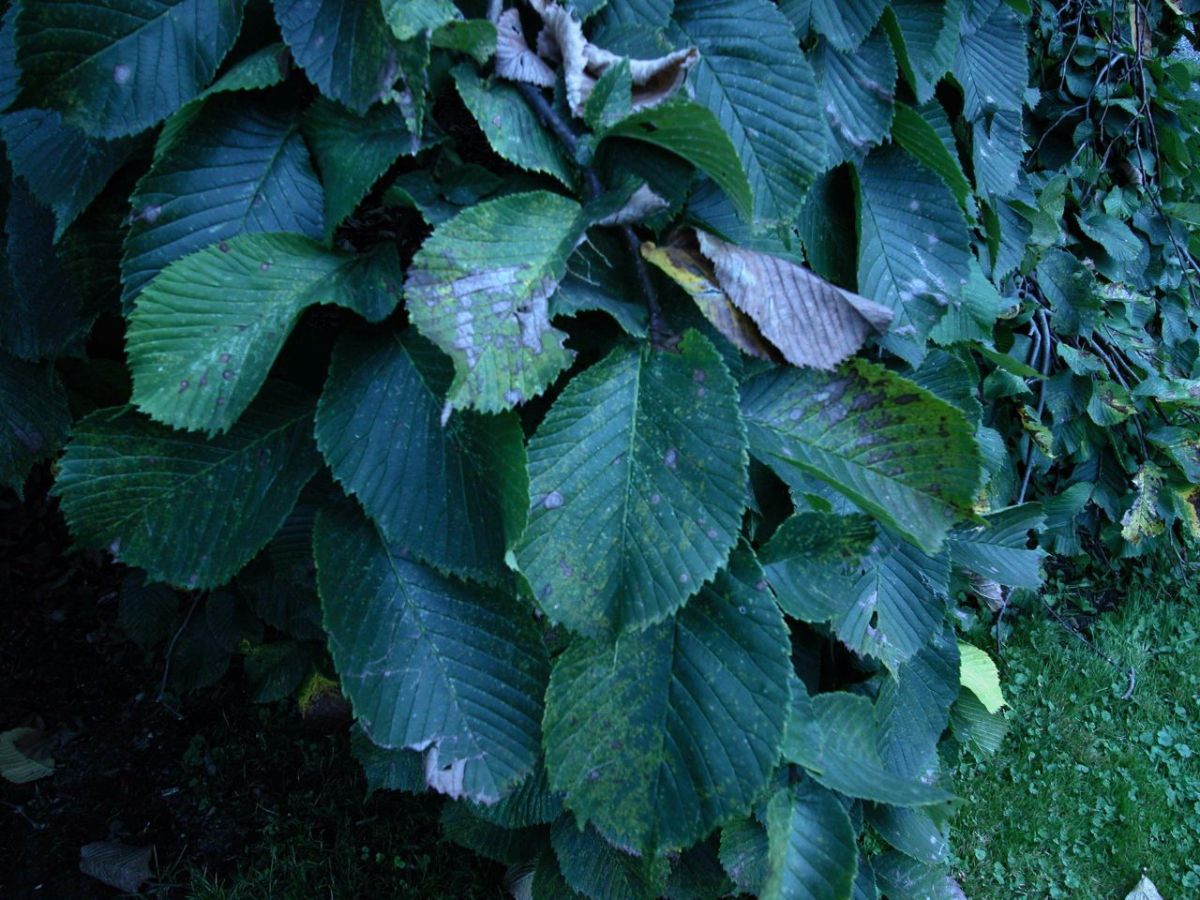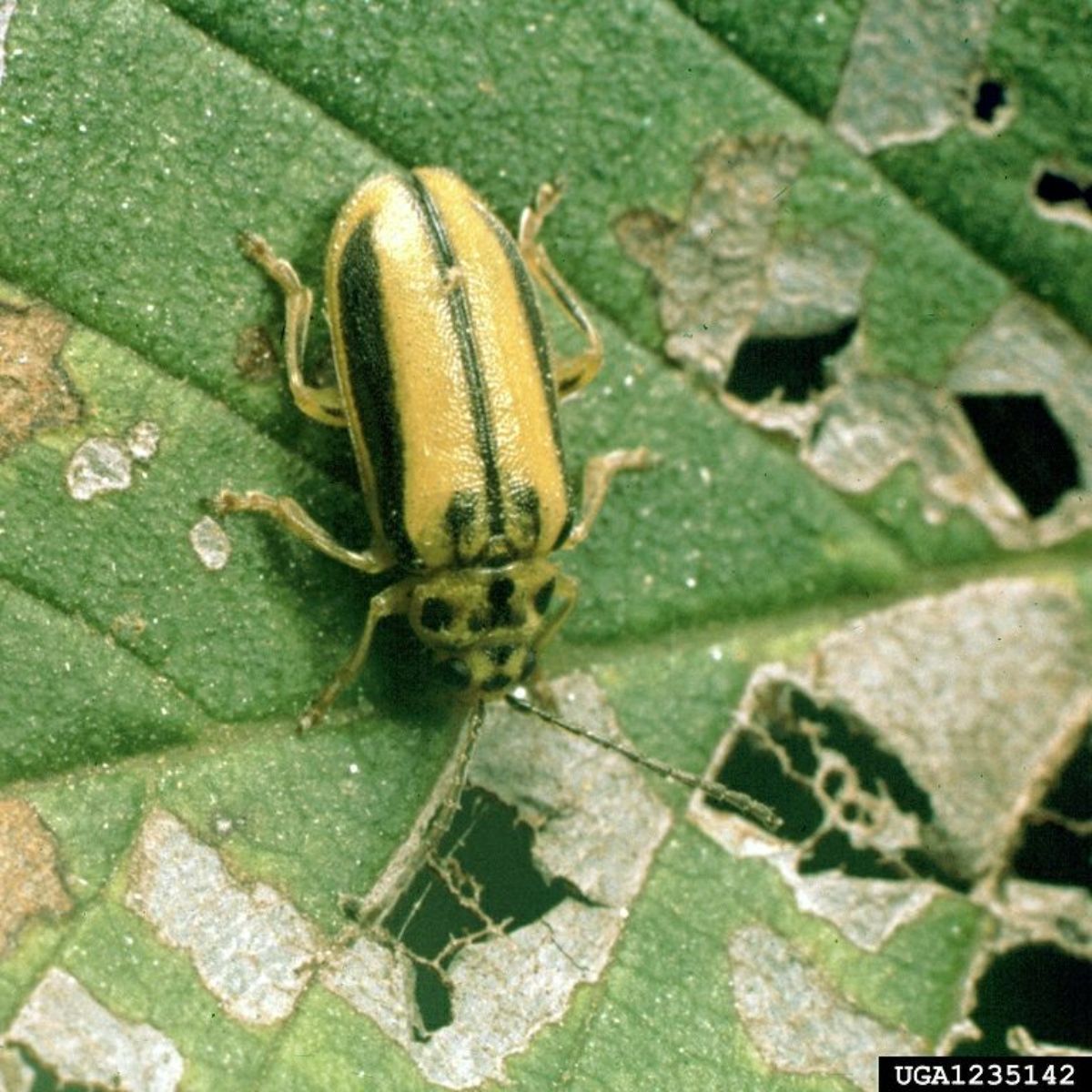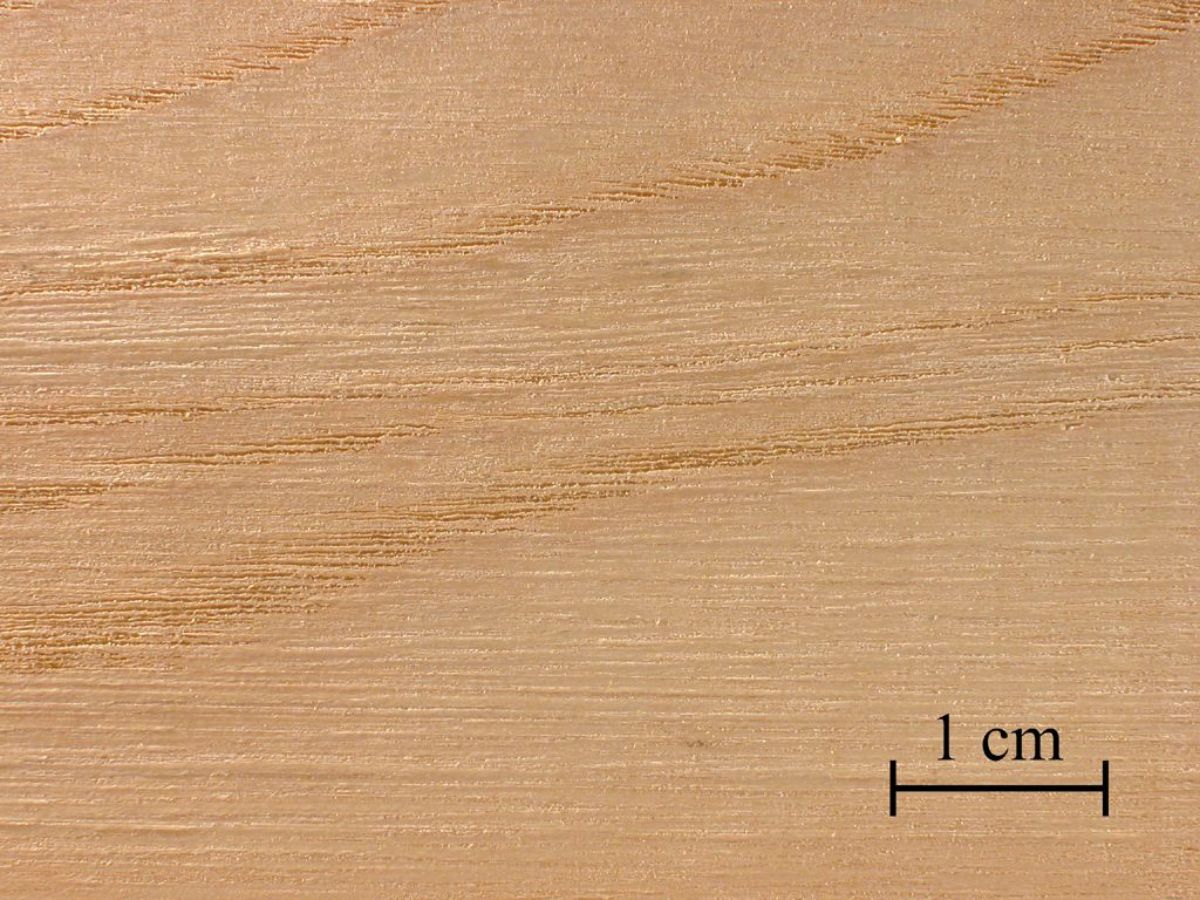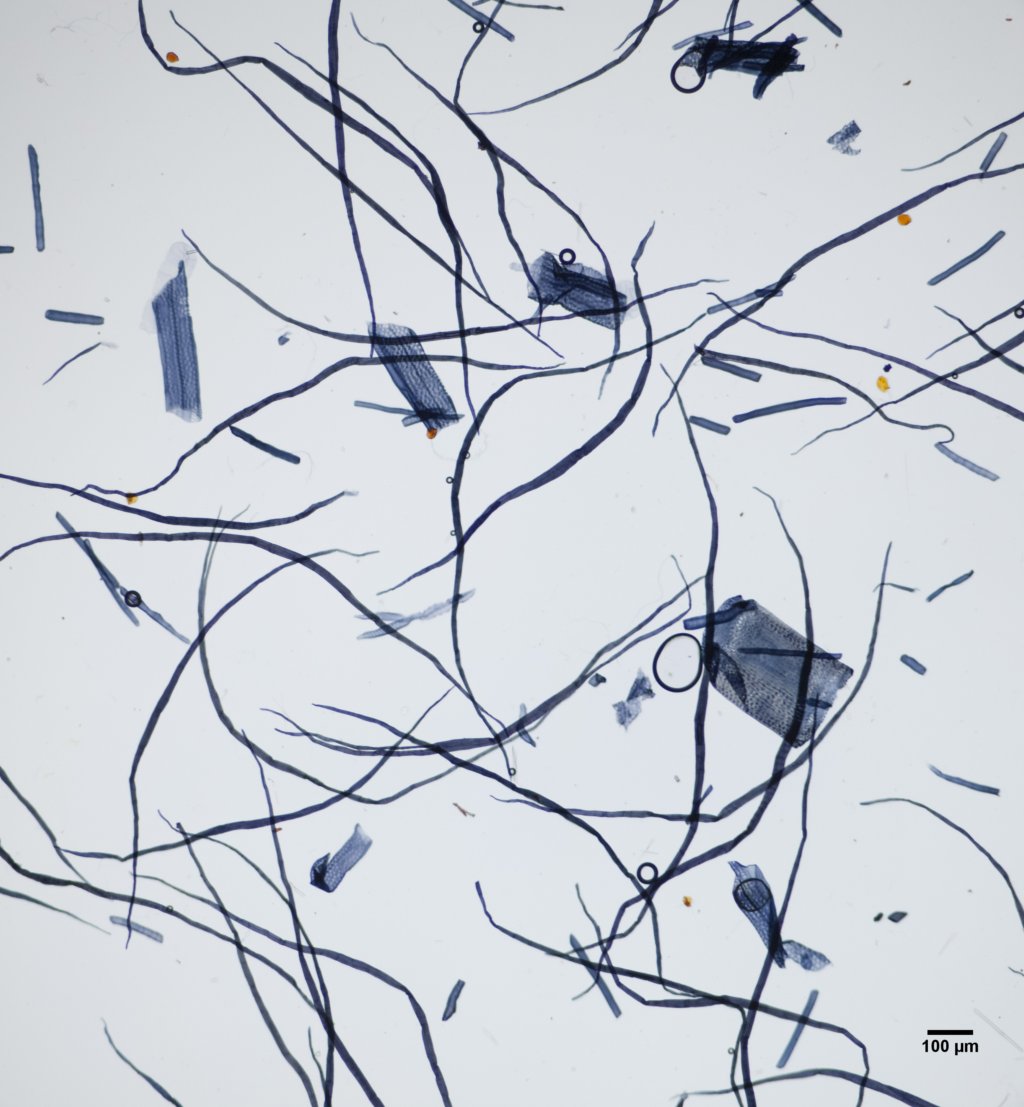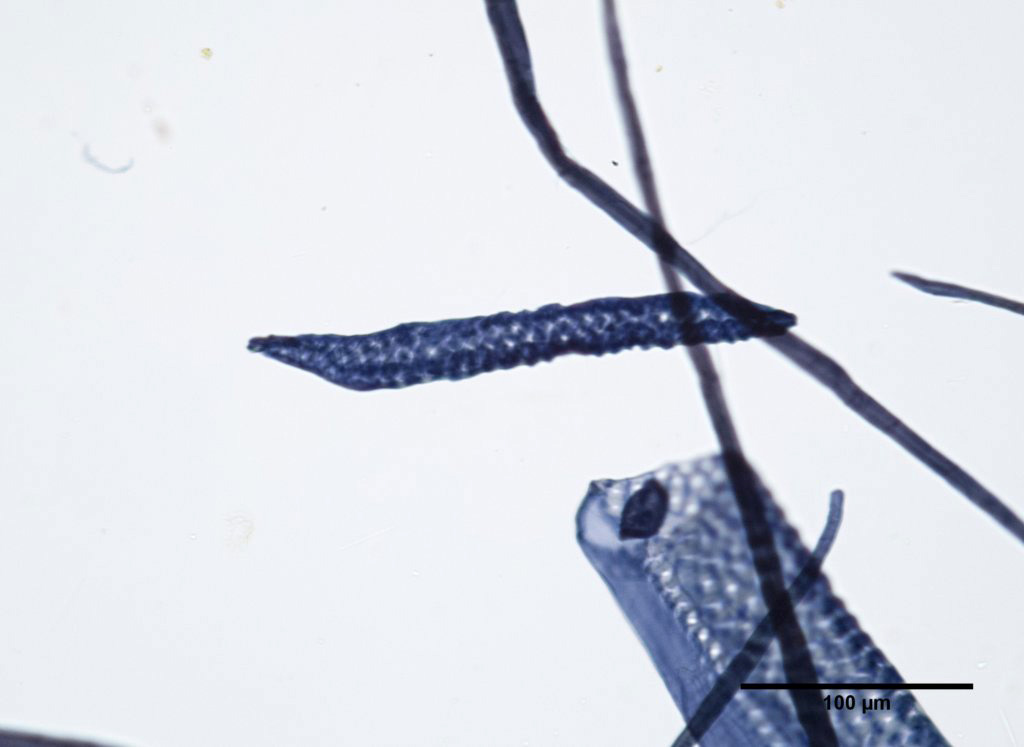Elm
Description
A family of trees, Ulmaceae, native to Europe, Asia, and North America. Elms are tall, fast growing trees that are primarily grown in parks and along streets as a shade tree; they can reach a height of 100 feet. The tough, durable, brown-color wood has been used for ax handles, yokes, wheels, weapons, coffins, ship structural parts and gymnasium equipment. Prior to the industrial revolution, elms were also used as water-pipes and water-pumps in London and other large cities because they are durable in water. From 1925 to the mid 20th century, many of the native European and North American elms were killed by the Dutch elm disease. These trees are now being replaced by the disease resistant Chinese elm.
Some species of elm are:
- American elm (white elm): Ulmus americana.
- English field elm: Ulmus procera.
- Dutch elm: Ulmus majorv.
- Chinese elm: Ulmus parvifolia.
- Slippery or red elm: Ulmus rubra; For fiber identification, see FRIL: Slippery Elm
- Rock or cork elm: Ulmus thomasii.
- Scots or wyth elm: Ulmus glabra.
- also - U. minor, U.carpinifolia, U. campestris, U.nitens
Synonyms and Related Terms
orme (Fr.); Ulme (Deut.); ulmo (It., Port.); olmo (Esp.); nire (Jap.); jilm (Ces.); iep (Ned.); olm (Ned.); wi¹z (Pol.); alm (Sven.); American elm or white elm (Ulmus american); English elm (Ulmus procer); Dutch elm (Ulmus major); Chinese elm (Ulmus parvifolia); slippery or red elm (Ulmus rubra); rock or cork elm (Ulmus thomasii); Scots or wyth elm (Ulmus glabra); rock elm (Ulmus racemosa); soft elm (Ulmas americana)
Physical and Chemical Properties
- Color: warm brown with whitish sapwood.
- Rings: distinct, Grain: distinct; Rays: distinct.
- Pores: diffuse, irregular (coarse to fine) forming wavy lines on longitudinal surfaces.
- Soft, light wood with an earthy smell
- Density = 32-40 ppcf
- Specific gravity = 0.51
Paper fiber type: hardwood. Using transmitted light microscopy, pulp is identified by vessels of three distinct sizes with alternate pitting. Spiral thickening may be present on small vessels. Trachieds with spiral thickening may be present. Perforations are simple . Appearance with Graff "C" stain: dark blue, but varies with bleaching. Average dimensions of fibers: length 1.5mm, 14.16μm wide. Common pulping method: kraft.
Additional Images
Working Properties
- Can be a challenge to work because of interlocked grain, especially on quartersawn surfaces.
- Planing can cause tearout and/or fuzzy surfaces.
- Poor dimensional stability.
- Glues, stains, and finishes well.
- Responds well to steam bending, and holds nails and screws well.
Resources and Citations
- The Wood Database: American Elm
- Alden Identification Services, Microscopic Wood Identification: Link
- Schoch, W., Heller, I., Schweingruber, F.H., Kienast, F., 2004:Wood anatomy of central European Species: Common English Elm,Ulmus campestris L.
- F. H. Titmuss, Commercial Timbers of the World, The Technical Press Ltd., London, 1965 Comment: 32-40 ppcf
- Ancient Egyptian Materials and Technologies, Paul Nicholson, Ian Shaw (eds.), Cambridge University Press, Cambridge, 2000 Comment: R.Gale, P.Gasson, N.Hepper, G.Killen, "Wood"
- H.L.Edlin, What Wood is That?, Viking Press, New York, 1969
- Encyclopedia Britannica, http://www.britannica.com Comment: Elm. Retrieved May 29, 2003.
- Wikipedia: http://en.wikipedia.org/wiki/Elm (Accessed Jan. 15, 2006)
- G.S.Brady, Materials Handbook, McGraw-Hill Book Co., New York, 1971
- Van Nostrand's Scientific Encyclopedia, Douglas M. Considine (ed.), Van Nostrand Reinhold, New York, 1976
- Random House, Webster's Encyclopedic Unabridged Dictionary of the English Language, Grammercy Book, New York, 1997
- The American Heritage Dictionary or Encarta, via Microsoft Bookshelf 98, Microsoft Corp., 1998
- CRC Handbook of Chemistry and Physics, Robert Weast (ed.), CRC Press, Boca Raton, Florida, v. 61, 1980 Comment:
density=34-37 ppcf (0.54-0.60 g/cm3)
- Marja-Sisko Ilvessalo-Pfäffli. Fiber Atlas: Identification of Papermaking Fibers (Springer Series in Wood Science). Springer, 1995.
- Walter Rantanen. "Fiber ID Course." Integrated Paper Services. June 2013. Lecture.
